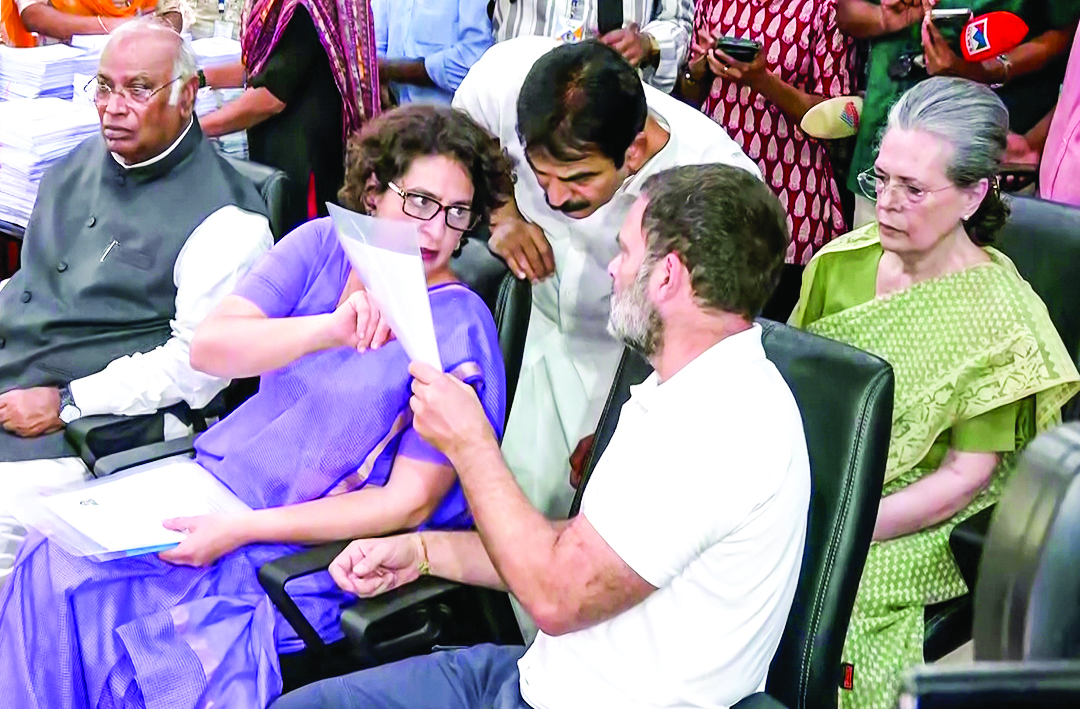Priyanka Gandhi is likely to win Wayanad, but doubts remain about Congress’s gain. Her entry also invites opposition criticism.
New Delhi: The elections in Wayanad have taken an interesting turn with the entry of Priyanka Gandhi into the electoral arena. With Priyanka Gandhi filing her nomination from Wayanad, another generation of the Nehru-Gandhi family seems ready to face the political landscape. Priyanka Gandhi, who has worked behind the scenes in politics for three decades, is now running for the Wayanad Lok Sabha seat in Kerala.
Priyanka Gandhi’s victory seems likely, as the Wayanad seat is predominantly Muslim-dominated, and the Congress-Muslim League alliance has deep roots in Kerala. As long as the Muslim League remains aligned with Congress, the chances of defeating her are slim. Given the current challenges Congress faces, structural weaknesses, leadership uncertainties, and the need for stronger alliances with regional parties, it’s uncertain how much her potential victory will benefit the party. It’s likely Priyanka will emerge as a significant force within Parliament, an influence that may be felt during legislative proceedings.
However, it’s unclear if Priyanka will achieve substantial change if she wins. Her previous political efforts have had limited success. In Uttar Pradesh, she spent over a decade trying to revitalise Congress without much progress. Initially, she enlisted Prashant Kishore and later formed an alliance with the Samajwadi Party (SP) for assembly elections, but the party suffered a heavy defeat.
In the 2022 assembly elections, Congress’s vote share dropped to three percent, despite initiatives like her slogan, “I am a woman, I can fight,” offering 40 percent of tickets to women, and encouraging fresh faces. None of these strategies succeeded. There were questions about whether Priyanka entered at an opportune time or if she struggled to adapt to the evolving political climate. Additionally, the party assigned her inexperienced secretaries, whose reputations were under scrutiny, adding to the difficulties. Her initial efforts fell short—she couldn’t fully establish her own team. Beyond Uttar Pradesh, Priyanka attempted to influence politics in Punjab and Rajasthan, but these initiatives similarly didn’t yield favorable outcomes.
Under Rahul’s leadership, Congress has not achieved the level of success needed to become a strong contender. In the 2024 Lok Sabha elections, Congress won 99 seats, crediting Rahul for a comeback. However, the party overlooked that these wins weren’t solely due to their own strengths; from North to South, Congress didn’t make enough progress to consider it a major achievement. They failed to account for the fact that some victories were due to BJP’s errors. Better strategies in states like Uttar Pradesh, Rajasthan, and Madhya Pradesh could have prevented losses in Haryana.
Now, Priyanka has entered the electoral fray, with her results expected around the same time as those for Maharashtra and Jharkhand elections.
If BJP secures victories in both states, Congress could struggle to regain momentum before the Kerala elections, potentially prompting internal questions about accountability.
Following these states, elections will turn to Delhi and Bihar, with Kerala scheduled in 2026.
If Congress secures Kerala, the party will likely debate who deserves credit, and Priyanka will have be at the receiving end to face criticism or praise. She must realise that alliances alone cannot secure electoral victories — strengthening the party’s organisational base is crucial.

